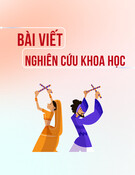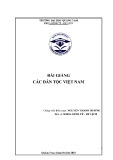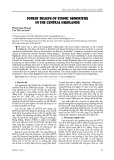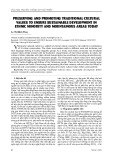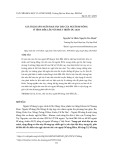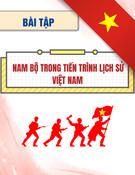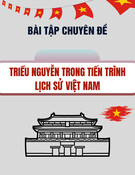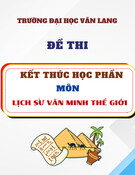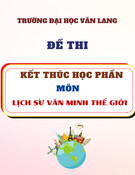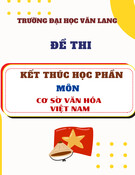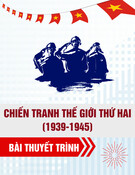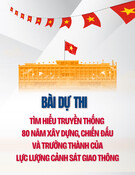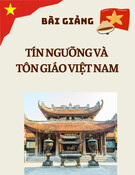
KINH TẾ VÀ XÃ HỘI
Volume 3, Issue 3 61
EDUCATION ON CONSERVATION, PROMOTION
OF TRADITIONAL CULTURAL IDENTITY
OF ETHNIC MINORITIES IN DAK LAK PROVINCE -
CURRENT SITUATION AND PROBLEMS*
Chu Vu Bao Thu1
Vu Thi Thanh Minh2
1Hanoi University; 2Thanhdo University
Email: baothu2911@gmai.com1; vttminh@thanhdouni.edu.vn2.
Received: 12/9/2024; Reviewed:16/9/2024; Revised: 18/9/2024; Accepted: 25/9/2024
DOI: https://doi.org/10.58902/tcnckhpt.v3i3.172
Abstract: The current context of international integration opens up many opportunities for the
country to develop, but that context also poses many challenges for the work of preserving the culture
of ethnic minorities. For Dak Lak province, when the traditional cultural values of local ethnic
minorities are facing the risk of fading away, the issue of education to preserve the culture of ethnic
minorities becomes even more important. In fact, it has raised the responsibility for education to
preserve and promote the cultural identity of ethnic minorities for the community and the participation
of authorities at all levels. Based on the above meaning, the study analyzes the current status of
education to preserve and promote the cultural identity of local ethnic minorities in Dak Lak province
over the last period of time. On that basis, it suggests some contents that need attention when
implementing education to preserve the traditional culture of local ethnic minorities in the province.
Keywords: Local ethnic minorities; Education to preserve and promote traditional cultural
identity; Dak Lak Province.
1. Problem statement
Dak Lak is a province of the Central Highlands
with 2,481 villages, merchants, and residential
groups, of which 608 are the main residences of
local ethnic minorities such as: Gia Rai, Ede, Ba
Na, So Dang, Co Ho, Mnong, Raglai, Gie-Trieng,
Ma, Chu Ru... This place converges all the natural
elements of forests, mountains, rivers and lakes,
rapids, along with the diverse cultural identity
elements of 49 ethnic groups. However, at present,
many cultural values of compatriots are gradually
being transformed or transformed in a negative
direction. A part of the young class is no longer
interested in the traditional cultural values of the
nation. Industrial cultural products and imported
goods are dominating over traditional cultural
products. The effects of the market economy, the
effects of foreign cultures also degrade some
traditional moral values of ethnic minorities. In the
* The article is the result of a provincial-level research project: "Building an educational model to
preserve and promote traditional cultural identity of ethnic minorities in Dak Lak province", 2022 -
2024
face of that fact, research on cultural conservation
education of ethnic minorities in Dak Lak and
pointing out factors to enhance the effectiveness
of that conservation education is extremely
necessary.
2. Research overview
In many countries around the world, the issue
of education to preserve and promote traditional
cultural traditions has been paid attention to and
focused by all levels of government and academia.
In Vietnam, in recent years, author Ngo Quang
Dien (1999), "Preserving and promoting national
cultural identity: The role of research and
education", Ho Chi Minh City Publishing House.
Ho Chi Minh has learned about culture, cultural
identity, preservation and promotion of national
cultural heritage; The role of various types of
education in the preservation and development of
national culture. Le Cao Thang's doctoral thesis





